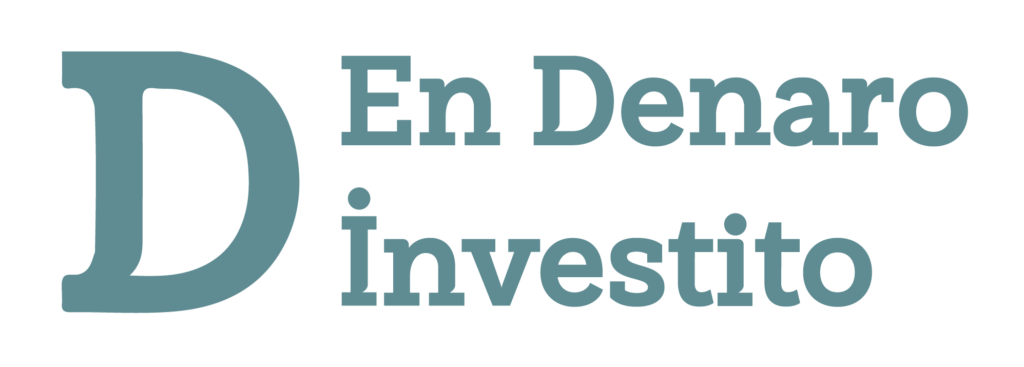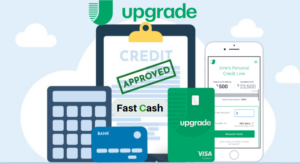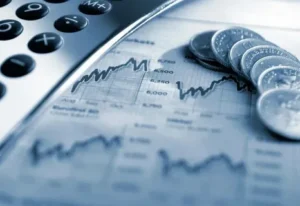Are you stuck deciding between a personal loan and a credit card? Choosing the right personal finance decision is key. But, how do you pick the best option for you?
When picking financial products, think about how they affect your money and goals. This article explores the differences between loan vs. credit options. It aims to help you make a smart choice for a better financial future.
Understanding Personal Loans
Personal loans are a flexible way to get money for many needs. They can help with debt consolidation or big life events. You can get them secured or unsecured. Unsecured loans don’t need collateral, making them popular.
What is a Personal Loan?
A personal loan is credit from banks, credit unions, or online lenders. It’s different from mortgages or auto loans because it’s unsecured. This means you don’t need to offer collateral.
Because of their flexibility, people use these loans for big expenses, medical bills, or home improvements.
How Personal Loans Work
Getting a personal loan is simple. You apply to the lender, who checks your credit score, income, and debts. If approved, you get the money and pay it back in installments over loan terms.
Here’s how it works:
- Submit Application: Give personal and financial details.
- Credit Review: The lender checks your credit and finances.
- Approval: If you’re approved, you get the money quickly, usually in a few hours to days.
- Repayment: Pay back the loan in regular installments as agreed.
Interest Rates and Fees
Personal loans have fixed or variable interest rates. Fixed rates stay the same, making payments predictable. Variable rates can change with the market. Loans also have fees like origination fees for processing and prepayment penalties for early payoffs.
Here’s a quick look at interest rates and fees:
| Interest Rate Type | Description |
|---|---|
| Fixed | Stays the same over the loan term, predictable payments. |
| Variable | Can change with market conditions, monthly payments may vary. |
| Fee Type | Description |
| Origination Fee | One-time fee for processing the loan. |
| Prepayment Penalty | Charge for paying off the loan early. |
Understanding Credit Cards
Credit cards are a key part of managing money today. They offer revolving credit, which lets users borrow and repay money as needed. Banks and credit unions issue these cards, giving people a credit line to spend up to a certain limit.
What is a Credit Card?
A credit card is a card made of plastic or metal. It gives users access to revolving credit for daily and big purchases. When you use a credit card, you’re borrowing money from the issuer. You must pay it back, either all at once or over time, with interest if you don’t pay by the due date.
How Credit Cards Work
Credit cards use revolving credit, letting users borrow and repay money over and over. When you buy something, your credit line goes down by the purchase amount. It goes back up when you make payments. Features like grace periods and minimum payments help keep accounts in good shape.
Interest Rates and Fees
Credit cards have different interest rates and fees. The main one is the annual percentage rate (APR), which is the yearly interest on unpaid balances. There are also fees for late payments, going over your limit, and foreign transactions. Knowing about these fees is important for managing your money well.
Personal Loan Advantages
Personal loans have many benefits that make them appealing to borrowers. They offer lower interest rates and flexible borrowing options. These loans are designed to help with various financial needs efficiently.
Lower Interest Rates
Personal loans have lower interest rates than credit cards. This makes them great for debt refinancing. Borrowers can save a lot on interest payments over time.
Fixed Repayment Schedule
Personal loans have a fixed repayment schedule. This means borrowers have predictable monthly payments. It helps with budget management because payments stay the same, without surprise increases in interest or fees.
Large Lump Sum Borrowing
Personal loans also allow for borrowing a large sum of money at once. This is useful for big financial needs like home renovations or medical expenses. It’s also good for consolidating multiple high-interest debts into one manageable loan.
| Personal Loan Advantages | Details |
|---|---|
| Lower Interest Rates | Ideal for debt refinancing, saving on interest costs over time |
| Fixed Repayment Schedule | Provides predictable monthly payments for better budget management |
| Large Lump Sum Borrowing | Enables access to substantial funding for major financial needs |
Credit Card Benefits
Credit cards offer many benefits that make them convenient and flexible. They are great for everyday spending and short-term needs. This makes them a popular choice for many.
Convenience and Flexibility
Using a credit card is very convenient. You can get money quickly for any expense. You don’t need cash when you buy things online, by phone, or in person.
Credit cards also offer financial flexibility. They help manage short-term cash flow gaps. This is thanks to revolving credit.
Rewards and Cashback
Many credit cards have rewards programs. These offer cashback, travel points, and more. These rewards can be very valuable, especially for frequent users who pay off balances monthly.
You can use rewards for things like merchandise, travel, or statement credits. This makes spending more rewarding.
Building Credit Score
Using credit cards responsibly can help build your credit score. Keeping low credit utilization and making payments on time shows lenders you’re reliable. This can lead to better loan terms later on.
Having a strong credit score is key for future financial opportunities. It opens doors to better deals and terms.
Understanding credit card benefits helps make smart financial choices. It’s about using rewards, managing credit, and staying flexible. This aligns with your financial goals.
Personal Loan vs. Credit Card: Key Differences
Choosing between a personal loan and a credit card requires understanding some key differences. This comparison helps people pick the right option for their financial needs and ability to repay.
One big difference is in credit utilization. Personal loans usually have fixed terms and larger amounts. This affects your credit utilization over time. Credit cards, however, offer revolving credit. This means you can borrow and repay as you go, giving you more flexibility.
Another important factor is the funding methods available. Personal loans give you a single payment for big expenses or debt consolidation. Credit cards, on the other hand, let you access funds anytime. They’re great for covering small, unexpected costs or regular expenses.
| Aspect | Personal Loan | Credit Card |
|---|---|---|
| Borrowing Limits | Higher, one-time disbursement | Lower, revolving credit |
| Repayment Terms | Fixed monthly payments | Varied, minimum monthly payments |
| Impact on Credit Utilization | Long-term utilization rate | Variable, based on usage |
| Funding Methods | One-time lump sum | Continuous access to credit |
Impact on Credit Score
Knowing how different credits affect your score is key. Personal loans and credit cards each have their own way of impacting your score. They show how well you handle money and add to your credit mix.
How Personal Loans Affect Credit Score
Personal loans can help your score if you manage them well. They add variety to your credit mix, which is good. But, always pay on time. Missing payments can hurt your score and show you’re not financially responsible.
How Credit Cards Affect Credit Score
Credit cards also play a big part in your score. Using them wisely, like keeping balances low and paying on time, shows you’re financially savvy. But, using too much credit or missing payments can lower your score.
When to Choose a Personal Loan
Personal loans are a smart choice in many financial situations. They offer flexibility and structured payments. Let’s look at when choosing a personal loan makes sense.
Consolidating High-Interest Debt
Using a personal loan to consolidate high-interest debt can lower your interest rate. It simplifies payments into one, often with a lower rate. This helps your financial planning and can save you money over time.
It’s especially good for paying off credit card debts.
Making Large Purchases
For big expenses like home renovations or car buys, personal loans are great. They give you a lump sum to repay over time. This is better than using many credit cards.
Personal loans have a fixed repayment plan and lower interest rates. This makes them a good choice for big expenses.
Funding Major Life Events
Personal loans are perfect for big life events like weddings or medical bills. They provide the needed money upfront. This way, you can manage your budget without affecting your long-term plans.
When to Choose a Credit Card
Using a credit card wisely can make your daily spending better. It helps you earn rewards and keeps your finances flowing smoothly. Let’s dive into when it’s best to use one.
Managing Short-Term Expenses
Credit cards are great for covering short-term costs. They let you access money right away for things like food, gas, or other daily needs. This way, you don’t have to use your savings until you get paid again.
Taking Advantage of Rewards
One big reason to use a credit card is the rewards you can get. Whether it’s cashback or travel points, they make your spending worth more. Using your card for big purchases can really add up to great rewards.
Improving Cash Flow
Credit cards can also help when money is tight. They let you pay later, keeping your cash flow steady. This is especially helpful when you have unexpected bills or your income changes.
| Advantages | Description |
|---|---|
| Managing Short-Term Expenses | Access to immediate funds for daily needs without using savings. |
| Taking Advantage of Rewards | Earn cashback and travel points, turning spending into perks. |
| Improving Cash Flow | Enable financial liquidity by deferring payments till the billing cycle ends. |
Comparing Application Processes
Understanding how to apply for personal loans and credit cards is crucial. It helps borrowers make smart choices. Knowing what’s needed, how approval works, and the importance of credit checks are key.
Personal Loan Application Process
Getting a personal loan involves a detailed process. Borrowers must meet certain requirements set by lenders. This includes showing income, employment, and bank statements.
The credit check is vital for approval. It affects the interest rates and how much you can borrow.
Credit Card Application Process
Credit card applications are quicker and less strict than personal loans. Yet, a credit check is still essential. It helps decide your credit limit.
Applicants must provide personal and financial details. Credit card approvals are often faster. This makes them good for quick access to funds.
| Criteria | Personal Loan | Credit Card |
|---|---|---|
| Required Documentation | Income Proof, Employment Status, Bank Statements | Personal Identification, Financial Information |
| Key Factor for Approval | Comprehensive Credit Check | Credit Check |
| Approval Timeline | Varies (Days to Weeks) | Usually Faster (Minutes to Days) |
Comparing Interest Rates and Fees
When choosing between a personal loan and a credit card, knowing about interest rates and fees is key. This comparison helps you see the real cost of borrowing. It looks at both options’ typical ranges and fee structures.
Personal Loan Interest and Fees
Personal loans usually have fixed interest rates. This makes it easier to know your costs over the loan term. The rates for personal loans vary from 5% to 36%, based on your credit and the lender.
It’s also important to think about other fees:
- Origination fees: These are 1% to 8% of the loan amount.
- Prepayment penalties: Fees for paying off the loan early.
- Late payment fees: Extra costs for missed or late payments.
Credit Card Interest and Fees
Credit cards often have variable interest rates. These rates change with the prime rate. The APR for credit cards can range from 15% to 25%.
Cardholders should also watch out for various annual fees and charges:
- Annual fees: These can be from $0 to several hundred dollars.
- Late payment fees: Penalties for overdue payments, usually $25-$35.
- Balance transfer fees: 3% to 5% of the amount transferred.
- Cash advance fees: Up to 5% of the cash advance amount.
Knowing these details helps borrowers make smart choices. It lets them compare financing costs and annual fees. An APR comparison between personal loans and credit cards is crucial. It helps find the best option for your financial goals.
Best Borrowing Option for Different Situations
Choosing the right borrowing option is key to reaching your financial goals. Whether it’s a personal loan or a credit card, knowing the best strategies can help. We’ll look at different situations and suggest the best financial products for each.
To find the best borrowing choice, we need to look at different financial situations. Here are some examples and the best borrowing options for each:
| Scenario | Best Borrowing Option | Reasons |
|---|---|---|
| Consolidating High-Interest Debt | Personal Loan | Lower interest rates and fixed repayment schedule help manage and reduce debt more effectively. |
| Managing Short-Term Expenses | Credit Card | Provides flexibility and convenience for minor, immediate expenses. |
| Funding Major Life Events | Personal Loan | Offers a large lump sum, useful for significant, planned expenditures such as weddings or home renovations. |
| Taking Advantage of Rewards | Credit Card | Loyalty programs and cashback rewards can benefit regular spenders significantly. |
By understanding your specific situation, you can make smart borrowing choices. It’s important to know the benefits of personal loans and credit cards. This way, you can pick the best option for your needs.
Conclusion
It’s important to know the difference between personal loans and credit cards. Both have their own benefits and drawbacks. Personal loans usually have lower interest rates and fixed payments. They’re great for big purchases or paying off high-interest debt.
Credit cards, however, are super convenient and flexible for everyday expenses. They can also help you earn rewards and cashback. Plus, they’re good for building a strong credit score if used wisely.
Knowing the differences helps you make smart financial choices. It’s about understanding your own financial needs and goals. With this knowledge, you can pick the right option for you. Now, you’re ready to make informed decisions and manage your money with confidence.













